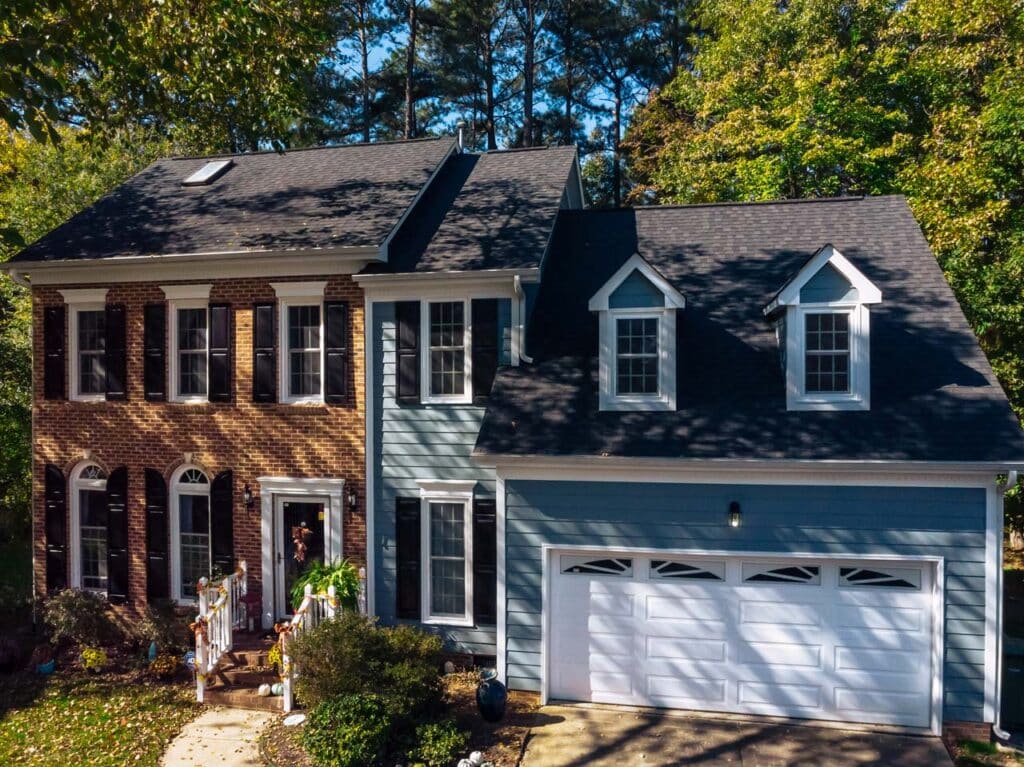There are few more effective ways to save on your monthly energy bill than by improving your home’s energy efficiency. By lowering the amount of energy you need to use, you get the same utility out of your lights, HVAC system, and everything else that runs off of electricity, but all at a lower cost. Because of that, more and more homeowners are looking for ways to reduce their homes’ energy consumption, allowing them to spend their money on what’s important rather than wasting it on sky-high energy bills.
Of course, one of the best paths toward maximum energy efficiency is replacing your windows, reducing energy consumption while making your home a great deal more comfortable to live in. In this article, we’ll explore how new windows can improve your home’s energy efficiency, giving you all the information you need to keep your bills low and your family comfortable.
How Much Money Can New Windows Save You?
Windows may not be your first thought when considering how to reel in your budget, but a properly-insulated window can help you save hundreds. In fact, the Environmental Protection Agency estimates that by replacing a single-pane window, you can save between $101-$583 a year. Given that the average yearly electricity bill in the US is $1404, that means you’ll save at least 7% or as much as 42% annually! And that doesn’t even take into account the tax credits on energy-efficient windows provided by the federal government.
All of these savings stem from replacement windows’ capacity to drastically reduce your energy consumption. But that begs the question, how do they do so?
Enhanced Insulation
One of the primary ways new windows boost your home’s energy efficiency is through improved insulation. Remember that older windows tend to develop gaps and cracks over time, allowing heat to escape in the winter and enter in the summer. This compromises temperature regulation within your home, causing your heating and cooling systems to work harder and consume more energy.
Luckily, newer energy-efficient windows feature advanced sealing technologies and multiple panes of glass. For instance, double or triple-pane windows are filled with insulating gases like argon or krypton, which act as a barrier to heat transfer. This significantly reduces the amount of heat that escapes your home in the winter and prevents unwanted heat from entering during the summer months.
Low-E Coatings
Another key feature of energy-efficient windows is low-emissivity (low-E) coatings. These are virtually invisible metallic layers, thinner than a human hair, which are applied to the glass and reflect heat and UV rays. By doing so, they allow natural light to enter while minimizing the transfer of heat. As a result, your home’s interior remains comfortable, and your heating and cooling systems run less frequently.
Because of this, you can use low-E coatings to reduce energy loss by between 30-50%, according to the International Association of Certified Home Inspectors. Not only does this save you money, but it also protects your furniture and flooring from fading due to prolonged exposure to the sun’s rays.
Better Framing Materials
The type of framing material used in your windows also plays a major role in energy efficiency. For instance, traditional aluminum frames conduct heat and cold easily, which can lead to temperature fluctuations inside your home. In contrast, vinyl, fiberglass, and wood frames are good at blocking heat in or out depending on the season, keeping you comfortable without forcing your AC to run overtime.
Vinyl is a popular choice due to its impressive insulation properties and low maintenance requirements, while fiberglass frames offer high strength and durability. And of course, wood frames provide that classic and timeless look many homeowners love while offering high-quality insulation. These materials work in tandem with the glass and sealing technology to create a tight barrier against the elements, ensuring a more energy-efficient home.
All in all, it’s hard to understate how much new windows can improve your home’s energy efficiency. By upgrading to energy-efficient windows, you’ll enjoy a more comfortable home and reduce your energy consumption all while lowering your utility bills. So, if you’re looking for ways to meaningfully improve your home while saving money, replacement windows are the way to go.



